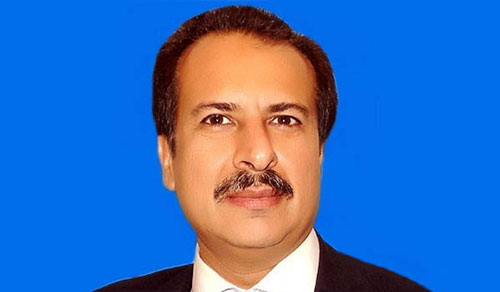Playing the 18th elephant
Once there was a king who had seventeen royal elephants beautiful elephants, bedecked with jewels, draped in silk, smart and strong. The king died, and left the elephants to his three sons, with instructions that the oldest son should get half of them, the middle son one-third, and the youngest one-ninth. The princes were confused.
Half of seventeen? A third? A ninth? What were they supposed to do? The king’s chief minister came up with a formula and said. “I’ll give you one of my elephants.” And so he brought in one of his, also quite stylish and bejewelled. The eldest son happily led nine elephants away (half of the bunch). The middle son took six. The youngest one noted that two is one-ninth of the total, and took his two. The princes together had 9+6+2 = 17 elephants, and the chief minister took his own elephant back to its stable, and they all lived happily ever after.
The above story mimics the country’s political situation of the day and the role the hidden hands played in quashing the chances of a budding disaster The opposition had adopted a hard line of not setting with the Government at any cost, the government on the hand had its reservations too. The stalemate continued till a call for a long march was announced by the opposition on 25th May, starting from Peshawar and culminating at “D Chowk” Islamabad.
While the political mercury was reaching the boiling point, the country’s economic situation was at its lowest possible ebb. The USD to PKR had climbed to a historic high, inflation skyrocketing, state fiscal resources drying up, and current account, and trade deficits broke their record. All this had its impact shifted to the poor people while the economy was still up the reek.
The IMF talks had then restarted at Doha and the odds of failure were high than a success. It’s imperative to highlight the direct proportionality of political stability with the health of the economy as both are deeply interlinked. The conditions are no doubt tough and unpalatable for the masses, it’s a double-edged sword if the government agrees, it has to pay a political cost, in case they defy the country goes bankrupt….
In the given situation when the opposition and the government were at daggers drawn, the worst on both political and economic fronts was all but a natural outcome. There was direly felt a need for a mediator to anchor the ship. The country’s political pundits, persons of thought, journalists and the whole nation had their eyes on the country’s powerful establishment. The predicament was that they had explicitly conveyed their stance of “Neutrality” time and again and was in no mood to be dragged back into the political domain.
It goes without bickering that establishment in the past had had its political adventurism, the impact of which is a lengthy debate. Though that role is largely disdained by the politicians it’s interesting that the same lot of politicians one way or the other have been the beneficiary of that military rule, be it General Ayub Khan times, Yahya Khan, General Zia’s tenure or General Musharraf; the end line beneficiaries have been the politicians of various mainstream political parties. Keeping that controversial debate aside, the issue at hand is the current situation.
Reliable sources have confirmed to this author that when no success was visible, the establishment took the horn by the bull and played the role of that 18th Elephant. Both the parties were brought to the negotiation table with the assurances that all discussions and decisions would be purely their own. This gesture was tacitly well received by both the camps as the ice got melted and a sort of arrangement was reached to take this further more constructively. The speeches afterwards and their body language testify to the notion.
Had they not jumped to the occasion the losses – both human and economic- could have been catastrophic. God forbids, a Srilanka like or worse off situation as forecast by some political astronomists could have been unleashed. Now how the Political leadership take it further is anybody’s guess, whether the early election formula or Term completion is agreed upon, or cat and mouse rounds continue. The better option as always is “quid pro quo”
The ball is in their court but the umpire in this game couldn’t be neutral, for the loss of either of them is the loss of the nation. It’s the moral and professional duty of the establishment to defend the country’s sovereignty, solidarity, stability and dignity. The issue at hand has its implications for the country’s security and solidarity. A strong, unified, organised army with strong roots in the public is the key guarantor of any nation’s sovereignty. The recent history of Kuwait, Afghanistan, and Ukraine is an eye-opener.
The country needs stability, peace, security, relief and fair chances for growth. The majority of the middle and lower-middle class have been averse to political wrangling. For them, their health, their children and family’s well-being and hopes for a bright future are the top concerns. The Media hype or social Media trends – a luxury the well-off can afford- is least of the concern of the general public as long as they are provided due rights, privileges and basic minimum needs.
While some kind of political settlement is expected to arrive it’s important that this newfound love take it to the next level and agree on a “Charter of the economy” above petty party lines. This charter should work as an economic bible for all regimes to come in the next ten years to put the country on the path of lasting peace and prosperity. The author is a global influencer, strategist, and internationally recognised public policy & health expert.
—He tweets at @DrNadeemjan










